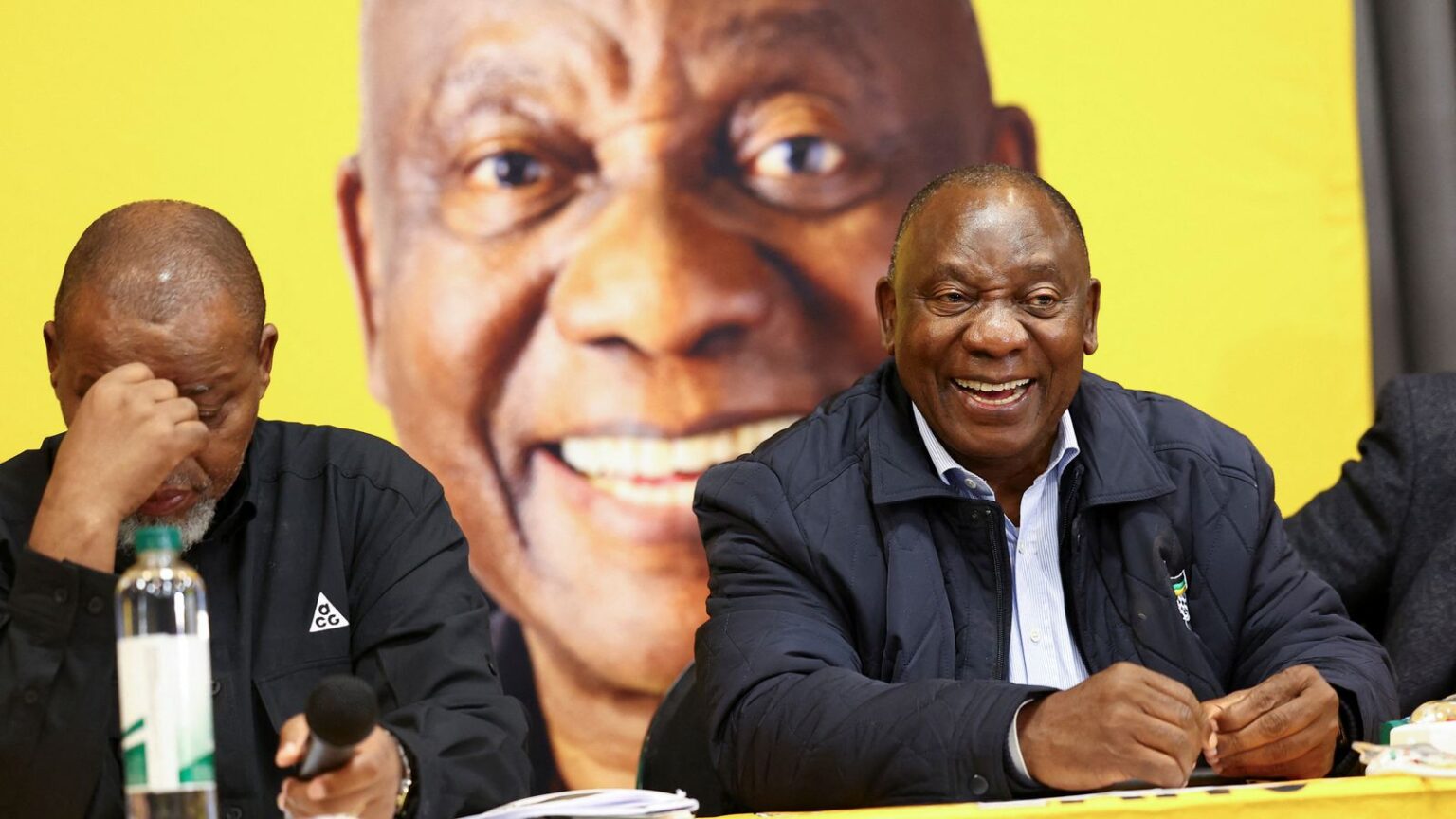In a significant shift in South African political landscape, the African National Congress (ANC), which recently lost its parliamentary majority in the May election, has reached an agreement to form a government of national unity with other parties. Cyril Ramaphosa has been re-elected for a second five-year term as president of South Africa following a coalition deal with the centre-right Democratic Alliance (DA) and smaller parties, marking a historic occasion after the ANC’s 30-year rule post-apartheid.
The ANC, garnering only 40% of the vote in the recent election, was compelled to negotiate power-sharing arrangements with opposition parties, including former adversaries to secure governance. In his address to parliament, President Ramaphosa expressed gratitude for the collaborative effort of all political entities involved in this pact. He articulated his commitment to fulfilling his presidential duties with a sense of humility and honor, acknowledging the weight of responsibility bestowed upon him.
This momentous occasion signifies a new chapter in South African politics as the country embarks on a path of unity and cooperation to address the challenges facing its populace. The coalition agreement, following extensive deliberations with opposition parties, exemplifies a departure from traditional party affiliations towards a collective approach for the betterment of South Africans. The leader of DA, John Steenhuisen, emphasized the importance of working together to build a prosperous future for the nation, heralding a newfound era of collaboration and progress.
The composition of the newly elected National Assembly reflects a diverse representation, with the ANC holding 159 of its 400 seats and the DA securing 87 seats. The ANC’s decision to align with the pro-business DA signifies a strategic move towards inclusive governance, albeit amidst concerns regarding conflicting ideologies and voter sentiments. As South Africa navigates these uncharted waters of political evolution, the nation stands poised to script a new narrative of unity and progress.
The ANC, grappling with diminishing support levels due to economic challenges, has witnessed a transformative shift in its demographics, necessitating a recalibration of its policies to address the needs of the populace. As the country grapples with issues of poverty, unemployment, and infrastructure deficits, the ANC’s traditional stronghold among black communities faces scrutiny in light of evolving societal dynamics.
In this era of political realignment and consensus-building, South Africa stands at a crossroads of change and transformation, as various parties unite under a common agenda to steer the nation towards a brighter future. The collaborative spirit exhibited by political leaders underscores a collective commitment to navigating the complexities of governance in a diverse and dynamic society.
References:
1. Ashwin Desai and Goolam Vahed. “The ANC and the Liberation Struggle in South Africa: The Legacy After Seventeen Years.” South African Historical Journal, vol. 63, no. 1, 2011, pp. 186–204.
2. Adekeye Adebajo and Kudrat Virk. “Nelson Mandela: The Centenary of His Birth.” African Journal of Political Science and International Relations, vol. 12, no. 3, 2018, pp. 70–77.
